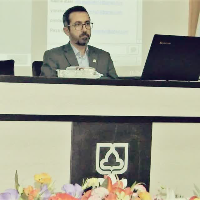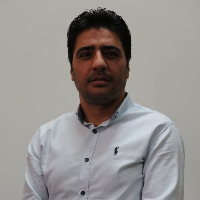Analysis of the speech acts of the Prophets' supplications in the Holy Qur'an based on John Searle's theory
Prayer is one of the highest religious teachings that plays an important role in spiritual education and the flourishing of the human soul. By praying, man declares his neediness, poverty, and ultimate servitude before God. The supplications of the prophets in the Holy Qur'an are among the discourses that have impact, coherence, and purposeful structure in the pragmatic and practical field of language and realize complex pragmatic meanings. The present study tries to analyze the language use of these prayers and the function of actions used in them by using the descriptive-analytical method and relying on Searle's speech act theory. One of the achievements of the research is that the language used in the verses is pragmatic in the sense that the words and sentences are not only productive but seek to implement action and change the outside world for the benefit of their users. The prayers of the prophets in the Qur'an, based on the model of John Searle, are based on three actions, which according to frequency are: 1) Persuasive action that is generally used in the form of indirect action, and the power in its statement is begging. In this action, the characteristic of power and dominance plays a fundamental role in the execution of the action; 2) Declarative action which has been used in both direct and indirect speech acts, and the power in its statement is confession and explanation; 3) Emotional action which is often used in the form of direct speech acts and the power in its statement includes remorse and regret. Of these three actions that are widely used in prayers, persuasive and declarative actions have the aspect of public expediency, and emotional action has the personal aspect and mental draining of the supplicant.
-
A critical discourse analysis study of Barid Al-Lail (explanation and interpretation levels)
*, Reyhane Emami Chahartagh
Studies in Arabic Narratology journal, -
The semantics of the word “dispute” based on the seven types of Izutsu's simultaneous semantic theory
Sakineh Mosavi Asl, Shaker Ameri *, Ali Akbar Noresideh
Journal Of Linguistic and Rhetorical Studies, -
Al-Hajjaj's style in the correspondence between Imam Ali (PBUH) and Muawiyah (Pragmatic study)
, Aliakbar Noorsideh*, Ali Zeighami, Reza Mirahmadi
The Journal of Research in Humanities, -
The Application of the Theory of Speech Acts in the Theological Discourse of Imam Riḍā (as)
AliAkbar Noreside *,
Journal of Razavi Culture,



